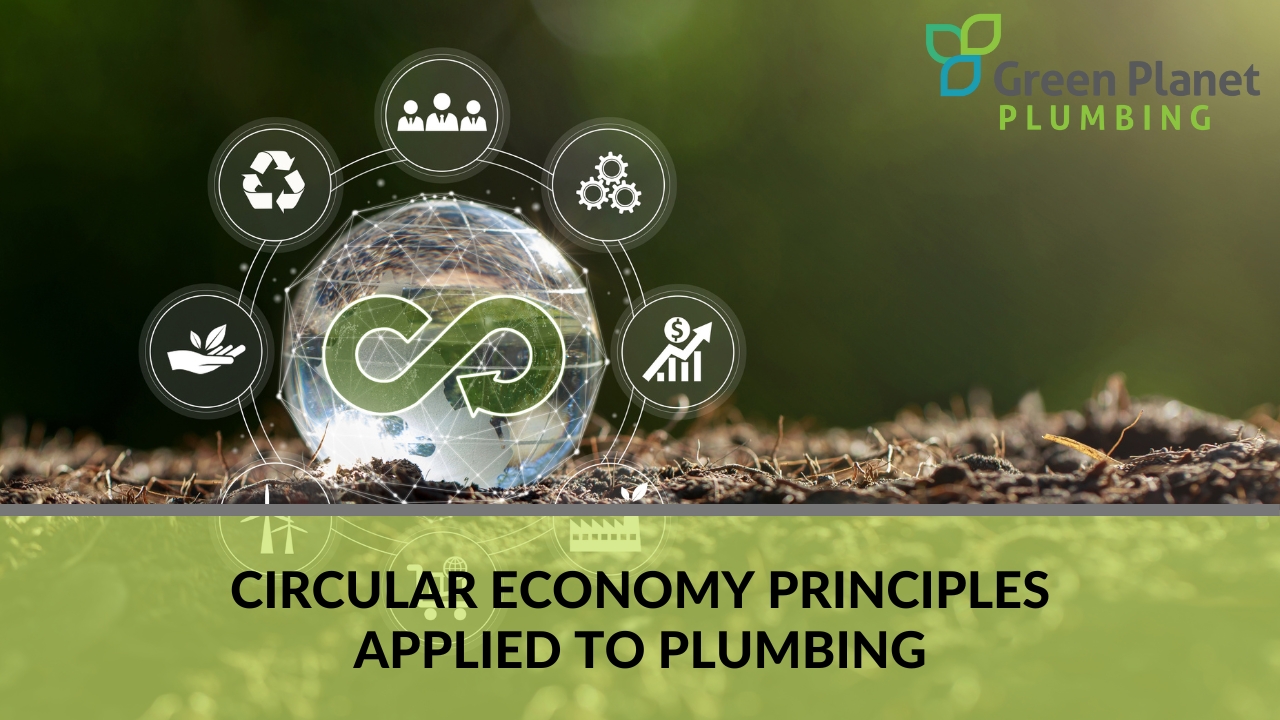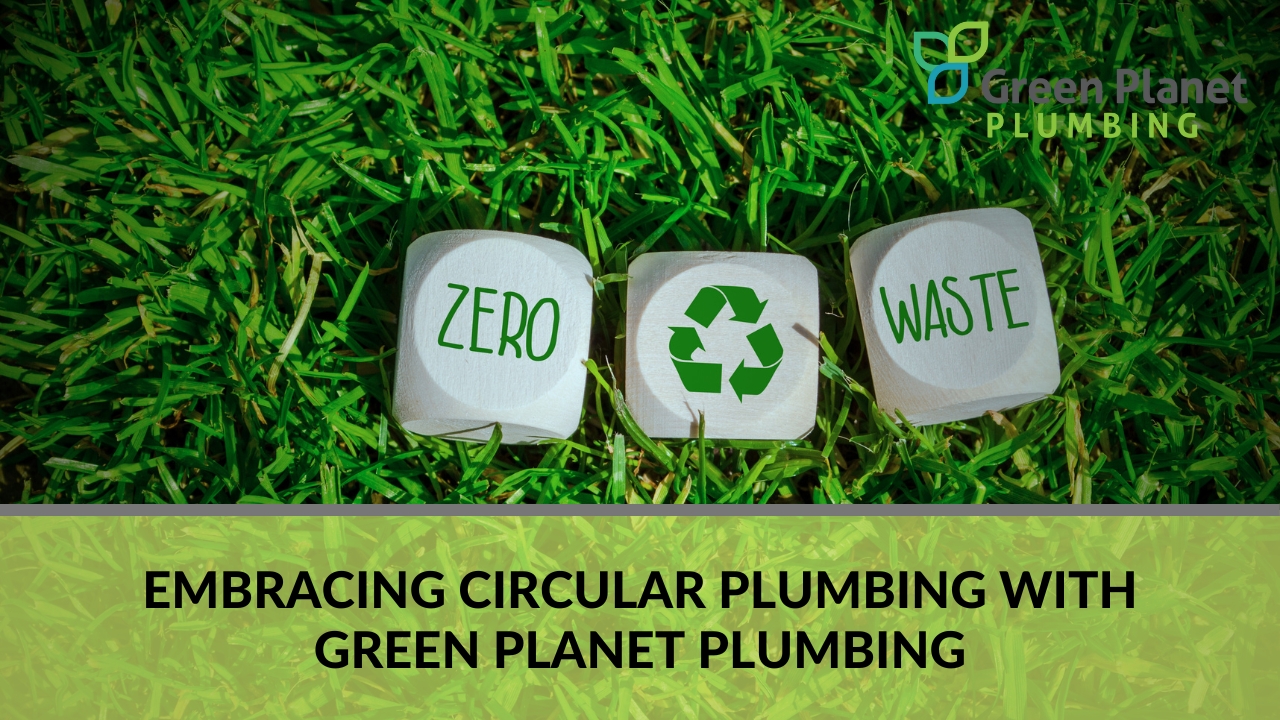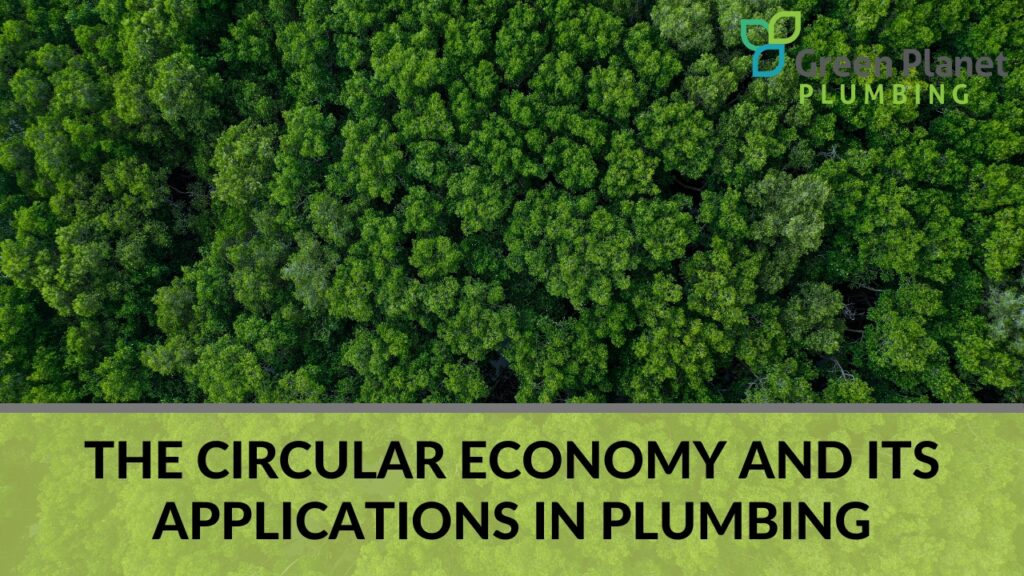As the global community faces ever-increasing environmental challenges, the concept of the circular economy emerges as a beacon of hope and sustainability. Unlike the traditional linear economy that follows a “take-make-dispose” model, the circular economy aims to minimise waste, maximise resource efficiency, and create a closed-loop system where materials and products are continuously reused, refurbished, and recycled. The plumbing industry, with its significant impact on water consumption and materials usage, stands as a crucial sector for embracing circular principles.
In this article, we delve into the applications of the circular economy in plumbing, exploring innovative practices that promote water conservation, materials recycling, and extended product lifespan. By integrating these principles into plumbing systems and processes, we can not only reduce environmental harm but also pave the way for a more sustainable and resilient future.
Understanding the circular economy
The circular economy embodies a set of principles that prioritise sustainability, resource efficiency, and waste reduction. At its core, this economic model seeks to decouple economic growth from resource consumption and environmental degradation. Rather than following the “take-make-dispose” linear approach, the circular economy emphasises the importance of regenerating, reusing, and recycling materials and products. By doing so, it aims to minimise the extraction of virgin resources, decrease the generation of waste, and lower the carbon footprint associated with production and disposal.
The key benefits of embracing the circular economy in the plumbing industry are multi-faceted, ranging from conservation of precious water resources to reducing the environmental impact of materials used in plumbing installations. As we explore the applications of this transformative approach in plumbing, we uncover innovative solutions that align with the urgent need for sustainable practices in our ever-changing world.
The plumbing industry and its environmental impact
The plumbing industry plays a pivotal role in our daily lives, providing essential services that ensure access to clean water, sanitation, and hygienic living conditions. However, this sector also presents significant environmental challenges that warrant attention and action.
One of the most pressing concerns is water consumption and wastage. Outdated plumbing systems, coupled with inefficient fixtures, lead to excessive water use, putting strain on water resources and increasing energy demands for water treatment. The materials used in plumbing installations, such as pipes, fittings, and fixtures, often contribute to environmental degradation due to their manufacturing processes and end-of-life disposal.
As the global population continues to grow, the environmental impact of the plumbing industry becomes even more pronounced, necessitating a shift towards sustainable practices that align with circular economy principles. By addressing these challenges and adopting circular approaches, the plumbing industry can become a powerful force for environmental conservation and pave the way for a greener and more sustainable future.

Circular economy principles applied to plumbing
In embracing the circular economy, the plumbing industry has a unique opportunity to revolutionise its practices and make significant strides towards sustainability. Water conservation and efficiency stand as pillars of circular plumbing, with a focus on reducing water wastage and optimising water usage. This can be achieved through the implementation of low-flow fixtures and faucets, which limit water flow without compromising functionality. Additionally, rainwater harvesting and greywater recycling systems can be integrated into plumbing designs, allowing for the collection and reuse of water for non-potable purposes, thereby reducing the strain on freshwater sources.
Another vital aspect of circular plumbing is the extension of product lifespan through durable and high-quality plumbing products. Investing in robust materials and designs ensures that plumbing systems have longer operational lives, reducing the frequency of replacements and the generation of waste. Regular maintenance and timely repairs further contribute to prolonging the lifespan of plumbing installations, mitigating the need for premature replacements and conserving resources.
Circular plumbing also entails the responsible recycling and reusing of plumbing materials. Instead of discarding end-of-life plumbing components, a circular approach encourages repurposing and refurbishing them whenever possible. Recycling facilities can play a pivotal role in processing used plumbing materials, converting them into new products, and closing the loop on resource usage. By promoting these circular principles, the plumbing industry can significantly reduce its environmental impact and contribute to the broader global efforts towards sustainable development.
Collaborating for a circular plumbing industry
The successful implementation of circular economy principles in the plumbing industry necessitates collaboration among various stakeholders. Manufacturers, plumbers, consumers, and government bodies all have vital roles to play in driving sustainable practices. Manufacturers must prioritise the design and production of environmentally friendly plumbing products with a focus on durability, recyclability, and resource efficiency.
Plumbers, on the other hand, are essential in educating clients about the benefits of circular plumbing solutions and in promoting water-saving technologies during installations and maintenance. Consumer awareness and active participation are equally critical to create demand for sustainable plumbing options and to encourage responsible usage of water resources.
Government regulations and incentives play a pivotal role in shaping the plumbing industry’s transformation. By implementing policies that promote circular practices, such as tax incentives for sustainable products and mandatory recycling requirements, governments can foster an environment that rewards eco-conscious choices.
Furthermore, training and education initiatives for plumbers on circular economy principles can ensure that industry professionals are equipped with the knowledge and skills to implement sustainable solutions effectively. Through collaborative efforts on multiple fronts, the plumbing industry can establish a thriving circular economy ecosystem, making a meaningful contribution to global sustainability goals.

Embracing circular plumbing with Green Planet Plumbing
As we navigate an era defined by environmental consciousness, the circular economy emerges as a beacon of hope for transforming the plumbing industry into a powerful force for positive change. By integrating circular economy principles, such as water conservation, extended product lifespan, and responsible materials recycling, the plumbing sector can significantly reduce its environmental impact and contribute to a more sustainable future.
Green Planet Plumbing, a pioneer in eco-friendly plumbing solutions, invites you to join the movement towards a greener tomorrow. Together, let’s embrace circular practices, from water-saving installations to sustainable product choices, to preserve precious resources and safeguard the planet for generations to come. It’s time to flush away old habits and embark on a journey towards a brighter, more sustainable future with Green Planet Plumbing!

